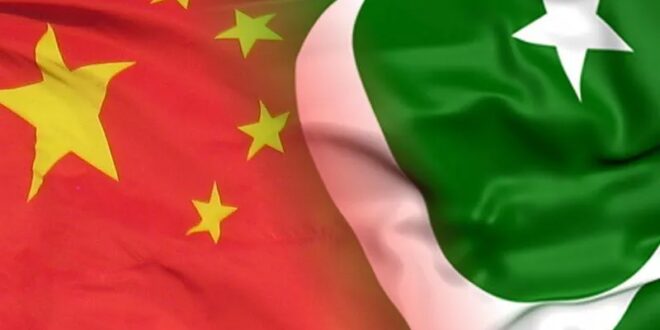China and Pakistan share a strong and enduring relationship that has evolved into a threshold alliance over the years. Established in May 1951, their diplomatic ties have transformed into a deep friendship and partnership, spanning various areas of cooperation. The bond between the two nations strengthened during Pakistan’s tumultuous early decades, as China provided critical support during two full-scale wars in 1965 and 1971.
China’s unwavering support for Pakistan on the Kashmir issue and its investment in infrastructure projects in disputed areas exemplify the depth of their partnership. The early 2000s saw further collaboration through the development of Gwadar Port and the signing of a free trade agreement in 2006. The launch of the China-Pakistan Economic Corridor (CPEC) in 2015 under the Belt and Road Initiative (BRI) further solidified their economic ties.
However, recent years have seen a slow growth of CPEC-based infrastructure projects amid economic challenges in both countries. China’s declining economic growth has raised concerns about the sustainability of its investments in Pakistan. Additionally, a surge in terrorism and extremism in Pakistan has further strained the relationship, with attacks directly targeting Chinese nationals.
Despite these challenges, the China-Pakistan partnership remains resilient, rooted in mutual trust and shared strategic interests. China’s decision to roll over a $2 billion loan to help Pakistan cope with its economic crisis underscores its commitment to the relationship. CPEC has been a flagship project for China’s BRI, aiming to connect China’s Xinjiang region to Gwadar port in Pakistan through a vast network of roads and railways. The project has brought significant foreign direct investment, transforming Pakistan’s economy and improving regional connectivity.
Although there have been criticisms regarding the slow development of industrial and special economic zones under CPEC, progress is being made in this area. The Punjab government, for instance, has allotted lands in most of the local zones, indicating the potential for spearheading initiatives. Nonetheless, of all major areas of cooperation, economic collaboration is relatively underexplored, and it may take more time and joint effort to flourish.
On the other hand, the most important domain of bilateral cooperation – security – has witnessed extensive collaboration in recent years. Pakistan and China are reliable partners with a strong alignment on military cooperation and key strategic issues in regional security and counterterrorism. They have a strategic partnership based upon recognizing the importance of a stable and secure regional environment.
This close partnership can be witnessed by the statement of the former army chief of Pakistan, General Qamar Javed Bajwa, at a ceremony marking the 95th anniversary of China’s People’s Liberation Army, held at General Headquarters, Rawalpindi. Bajwa stressed the importance of the China-Pakistan military partnership by characterizing the PLA and Pakistan Army as “brothers in arms” that work together to safeguard “our collective interests.”
China plays a crucial role in maintaining a balance of power in South Asia. Pakistan is the largest recipient of Chinese arms, acquiring almost 40 percent of Chinese arms exports. In terms of military collaborations, military interactions between China and Pakistan during 2017 and 2021 surpassed China-Russia military engagements, making Pakistan’s military the top collaborator with the PLA during this period. These collaborations include joint exercises, defense cooperation, and the exchange of military technologies and expertise.
China’s renewed support for Pakistan’s stance on critical matters like Afghanistan and the Kashmir dispute underlines a close alignment in shared interests. Its immediate call for a U.N. Security Council meeting in 2019 upon Pakistan’s request, after border escalations and air skirmishes occurred between India and Pakistan, embodied China’s “unlimited support” for Pakistan in the United Nations.
The recent visit of Foreign Minister Qin Gang to Pakistan in May 2023 to attend the China-Afghanistan-Pakistan foreign minister dialogue also underlines the importance China attaches to Pakistan and stability in its neighborhood. China’s mediating role in the Middle East and its willingness to engage the Taliban regime by integrating it into Beijing-led regional economic frameworks indicate that China wants a stable and prosperous Pakistan to become a regional hub that can check India’s hegemonic aspirations and secure Chinese interests in the region.
Pakistan is important for any initiative in South Asia and the neighboring regions. Its value for China as a tested partner and capable military power has increased in the face of growing pressure from the U.S.-led allies and growing collaboration between India and the United States. Amid these challenges, minor rifts between China and Pakistan, which do not affect China’s national security interests, would not impact the trajectory of their bilateral relations. Despite occasional differences and challenges, both China and Pakistan understand the significance of their partnership. They have proven to be reliable allies and strategic partners for each other. This relationship is built on mutual trust, shared values, and common interests.
Economically, CPEC has been a game-changer for Pakistan. The ambitious project aims to improve connectivity between China and Pakistan through a network of roads, railways, and energy infrastructure. It has attracted significant foreign direct investment and has the potential to boost Pakistan’s economic growth and development.
However, the success of CPEC also depends on addressing various challenges, including security concerns, political stability, and financial sustainability. Both China and Pakistan need to work together to ensure the smooth implementation of CPEC projects and address any issues that may arise.
In conclusion, the China-Pakistan relationship is a cornerstone of both countries’ foreign policies. It is based on mutual respect, trust, and a shared vision for regional peace, stability, and development. While challenges exist, the resilience and depth of their partnership have been demonstrated time and again. As long as both countries continue to prioritize their strategic cooperation and mutual interests, the China-Pakistan alliance will remain strong and play a crucial role in shaping the geopolitics of the region.
 Eurasia Press & News
Eurasia Press & News




